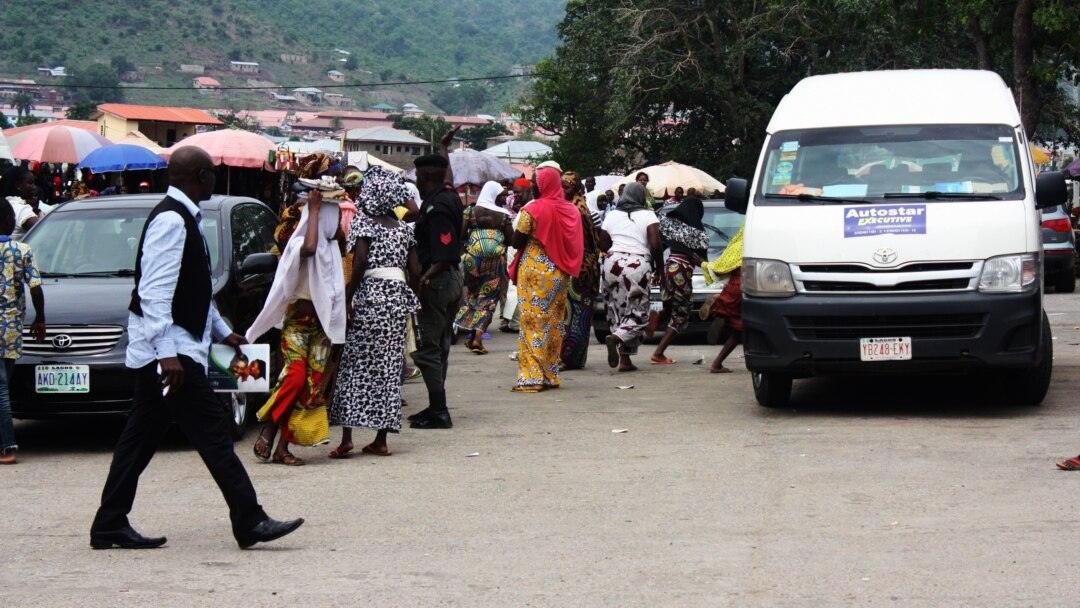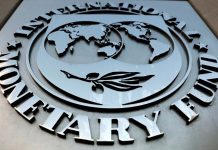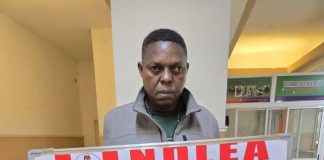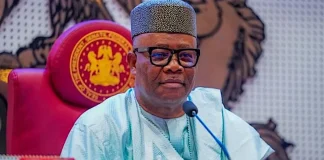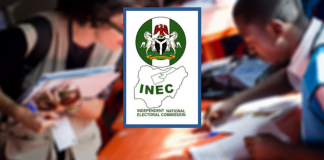🌿 Ruzu Non-Alcoholic Herbal Bitters
Ruzu Non-Alcoholic Herbal Bitters is a natural health supplement specially formulated to:
- ✅ Promote general wellness
- ✅ Detoxify the body
- ✅ Support the treatment of various ailments
Made from a powerful blend of 100% organic and medicinal herbs, Ruzu is completely alcohol-free, making it ideal for:
- 👪 All age groups
- 🌱 Health-conscious individuals
- 🌿 Anyone seeking non-alcoholic herbal remedies
Whether you're looking to boost your vitality, cleanse your system, or support healing the natural way, Ruzu Bitters offers a trusted herbal solution.
Nigeria’s indigenous population, numbering over two million, faces an uncertain future defined by state-backed land grabs, political exclusion, and the erasing of cultural identity as the country’s administrative capital grows and modernizes.
Their predicament is currently under worldwide scrutiny, with ramifications for Nigeria’s investment climate, land governance, and social stability.
The Resource Centre for Human Rights & Civic Education (CHRICED) gave a somber assessment of the “looming extinction” of Abuja’s indigenous peoples during the 18th Session of the UN Expert Mechanism on the Rights of Indigenous Peoples, which was held in Geneva.
Known as the Original Inhabitants (OIs), these groups, which comprise nine tribes and seventeen chiefdoms, formerly possessed ancient rights to the land that now houses Nigeria’s glittering capital.
The Executive Director of CHRICED, Dr. Ibrahim Zikirullahi, claims that “indigenous peoples in the FCT are being systematically erased—politically, economically, and culturally.”
At the UN’s Palais des Nations, he headed a six-person delegation backed by the MacArthur Foundation to make the case to world experts.
The issue has both legal and economic roots. The Federal Capital Territory (FCT), a projected center of authority meant to replace Lagos, was established by appropriating large tracts of land from these towns under Military Decree No. 6 of 1976, which was passed during the administration of General Murtala Mohammed.
The land was placed under federal authority after the decree took away customary title without paying any compensation.
As a result, entire people were forcibly relocated without a planned resettlement strategy; this is a mistake that has been made by succeeding administrations.
CHRICED contends that this dispossession has an economic cost in addition to a humanitarian one.
Abuja’s thriving land and property market, which is undoubtedly one of the most lucrative in West Africa, has excluded the original residents.
Today, the FCT serves as a center for infrastructural investment, international diplomatic presence, and public-private real estate initiatives. However, the people who own the land where this development is located continue to live in poverty and marginalization.
“Justice is not the only issue,” Dr. Zikirullahi stated in Geneva. “National stability is at stake. By laying its foundations on unresolved injustice, no capital city can grow sustainably.
Political disenfranchisement was also discussed in CHRICED’s presentation. Abuja’s OIs are numerically strong, but they are not fully represented in politics.
The FCT’s indigenous populations are frequently left out of decision-making processes pertaining to social services, infrastructure development, and land use because it lacks the same constitutional standing as Nigeria’s 36 states.
Although Supreme Court decisions have upheld these tribes’ claims to recognition and restitution, execution has stalled. CHRICED claims that this legal slowness is a reflection of larger governance issues, such as a policy culture that prioritizes urban growth above community preservation, a lack of political will, and bureaucratic corruption.
Read Also: Atiku’s Resignation Letter Purportedly Leaked by PDP Insiders: Paul Ibe Speaks Out
The ramifications are concrete for investors. In Nigeria, land-related disputes are a major source of commercial disruption, especially in industries like extractives, construction, and agriculture.
Project delays, lawsuits, and harm to one’s reputation can arise from a failure to interact with impacted communities, particularly those whose concerns remain unresolved.
According to Dr. Zikirullahi, “respect for the rights of the people who originally owned the land is necessary for sustainable investment.”
Additionally, CHRICED raised awareness of the problem of data sovereignty and urged the Nigerian government to implement a framework that incorporates data provided by the community into planning and policy.
This is especially critical in Abuja, where the unique socioeconomic circumstances of indigenous people are frequently overlooked by demographic data. It is practically hard to develop interventions that address cultural loss, unemployment, and displacement without precise, community-led data.
Geneva’s warning comes as Nigeria struggles with more general issues related to indigenous rights, land reform, and federal structure. Abuja’s unresolved indigeneity dilemma runs the potential of becoming a focal point for broader upheaval given the city’s youthful population and growing calls for decentralization.

